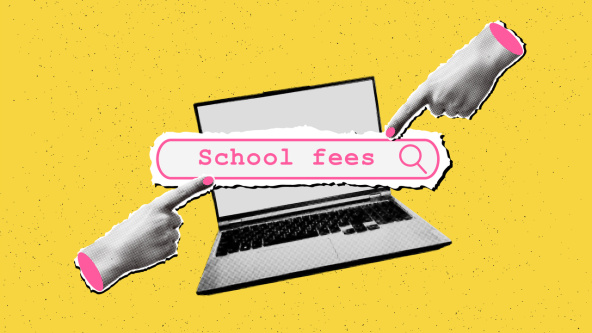How to pay for a private school education

The prospect of rising school fees is a significant concern for many parents in the UK, especially with the new Labour government’s proposal to levy a 20 per cent VAT on private school fees. Private school fees in the UK have been steadily rising, with the average cost for a day school exceeding £18,000 per year and boarding fees reaching over £42,000.
Private education remains a priority for many families, making the issue of affordability increasingly urgent with VAT expected to be implemented at the start of 2025. Despite the efforts of many schools who are prepared to shoulder some of the burden by absorbing part of the increase themselves, there is concern that the proposed increase in costs could force parents to withdraw their children from the private sector.
However, parents have several options to help them manage the costs if they decide that it is the right choice for them and their children.
Monthly Payment Plans
Some schools offer monthly payment plans that allow parents to spread the cost of fees evenly over the year instead of paying termly lump sums.
Pros:
reduces the pressure of lump-sum termly payments
can assist with household budgeting
Cons:
only alleviates the timing of payments, not the overall financial burden if your annual income is insufficient to meet the full fees for each academic year
Paying Fees in Advance
Some schools offer ‘fees in advance’ schemes, which allow parents to pay fees upfront, sometimes several years in advance.
Pros:
locks in current fee rates and protects against future increases
useful for those with available funds who wish to prepay
Cons:
anti-forestalling measures have eliminated the ability to avoid VAT by paying in advance
reduces personal financial flexibility, as funds are tied up long-term
Personal Loans & Unsecured Loans
Personal loans and unsecured loans are another option for parents needing to cover school fees.
Pros:
easy to obtain as they don’t require collateral
suitable for parents who need to cover short-term or smaller gaps in school fees but may not require a larger, long-term loan
Cons:
higher interest rates compared to secured loans, making them more expensive in the long term
less favourable repayment terms, meaning monthly repayments can still be high, potentially adding financial strain rather than relieving it, especially if larger sums are required for multiple terms or years
Traditional Secured Finance
Traditional secured finance options, such as further advances and second charge mortgages, offer parents a way to use the value tied up in their home to access funds for covering school fees
Pros:
lower interest rates make it more affordable for parents needing to borrow large sums to cover several years
could benefit parents who need a large lump sum to cover school fees upfront or in advance
Cons:
requires borrowing the full loan balance upfront and paying interest on the entire amount, even if not all funds are needed immediately
ties up home equity for the duration of the loan, which could limit future financial flexibility, especially if additional educational or household expenses arise
risk of home repossession if repayments are not met
HELOCs
Pros:
flexible borrowing facility, allowing parents to borrow each term’s fees when they become due; for many, this will save on the total cost of borrowing
allows for manageable monthly payments by spreading the cost over up to 30 years
lower interest rates compared to unsecured loans, often making it a more affordable option
no early repayment charges — if parents come into extra funds, such as a bonus or inheritance, they can pay this into the facility, reducing the monthly payments, interest charged and outstanding balance without penalty
Cons:
risk of home repossession if repayments are not met
repayment schedules can still create financial strain if not managed carefully, particularly if unexpected expenses arise
Grandparent Assistance
Pros:
gifting allows tax-free contributions up to £3,000 annually
using trusts can be considered as a tax-efficient way to pass on wealth for educational purposes
equity release can provide a lump sum or regular payments while retaining ownership of the property
Cons:
trusts can be complex to set up and may require professional advice with ongoing fees
equity release mortgages may reduce the estate value passed to future generations
It's worth planning ahead
Many schools, particularly preparatory schools, have reported a slowdown in demand for new students over the past year, with parents understandably worried about the affordability of fees. Even if your children are very young, it's never too early to consider how you’ll finance their education. By exploring all available options, staying informed, and taking a proactive approach, parents can find the right balance to ensure their children receive a quality education, turning a stressful situation into a manageable one.
Selina Finance is authorised and regulated by the FCA (FRN 820183). Your home may be repossessed if you do not keep up repayments on a mortgage or any other debt secured on it.
If you're looking for guidance on applying for financial support at private schools, our education consultants can support you through the process.
Featured in: Independent schools




